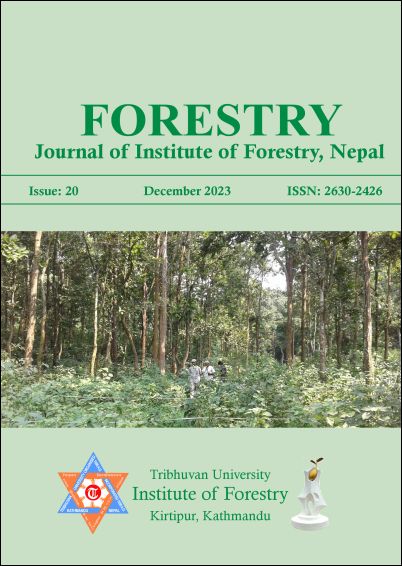Bird Diversity in Bhaludhunga: Exploring Avian Diversity in Eastern Mid-hills of Nepal
DOI:
https://doi.org/10.3126/forestry.v20i1.64341Keywords:
Endemic bird, Lower Mai Valley Forest, MacKinnon’s Listing Method, Restricted Range SpeciesAbstract
Birds are crucial to biodiversity and serve as an indicator of habitat quality, productivity and stability. This study documents the avian diversity in Bhaludhunga Community Forest and associated tea garden in Ilam, which is a part of the Mai Valley Forests Important Bird and Biodiversity Area. It addresses the limited research on avi-faunal diversity in eastern Nepal, particularly outside protected areas. MacKinnon’s Listing method was used to collect the data following the existing trail transect walk in the study area. During the study period, a total of 132 bird species from 41 families of 10 orders were recorded. Order Passeriformes were the most dominant order with 102 species followed by Accipitriformes and Columbiformes. Muscicapidae was the most commonly represented family with 19 species followed by Phylloscopidae, and Pellorneidae. One globally endangered species, Steppe Eagle along with five nationally threatened species was recorded during the survey. Two Restricted Range Species from the Eastern Himalayas Endemic Bird Area Spiny Babbler and Yellow-vented Warbler were also recorded in the area. However, extensive survey in the different seasons is required for further exploration of bird community, which might play a crucial role in developing baseline information and implementing conservation implications.
Downloads
Downloads
Published
How to Cite
Issue
Section
License
This license enables reusers to distribute, remix, adapt, and build upon the material in any medium or format, so long as attribution is given to the creator. The license allows for commercial use.




